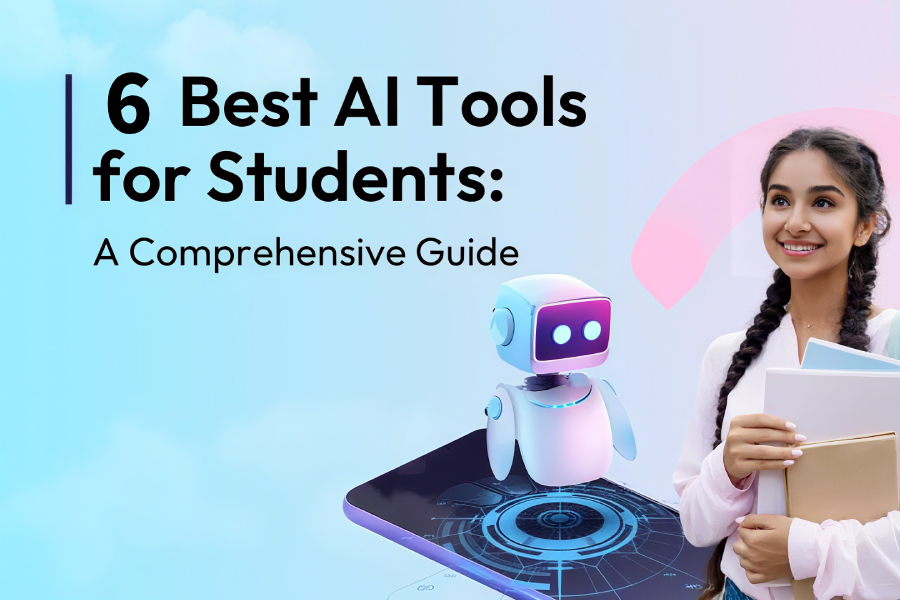As AI technology becomes more integrated into our daily lives, a growing number of students are leveraging AI tools to boost their academic efficiency, improve their work, and streamline the learning process. The right digital tools can transform the student experience, turning daunting tasks into manageable ones and helping us write, research, and think more effectively. This article provides a curated list of the best AI tools for students, covering a range of scenarios from text proofreading and reference management to mind mapping and complex calculations. These tools are designed to help you achieve more in your essay writing, project collaboration, and knowledge management.
Best AI Tools for Students I: Grammarly, AI Writing Assistant
Grammarly is an AI-powered writing assistant that checks for grammar, spelling, and punctuation errors in real-time. It also provides suggestions for vocabulary enhancement, sentence structure optimization, and tone adjustments, making it suitable for essays, reports, and presentations.
- Pros:
- Integrates with over 500,000 websites and applications, providing real-time corrections without needing to switch interfaces.
- The free version is sufficient for basic daily writing needs.
- Cons:
- Grammar suggestions can occasionally be inaccurate.
- The premium version is relatively expensive.
- Pricing:
- Monthly: $30
- Annually: $144 (approx. $12 per month)
- Summary: The free version is powerful and meets the needs of most students, while the paid version is suitable for users who require advanced style optimizations and plagiarism checks.
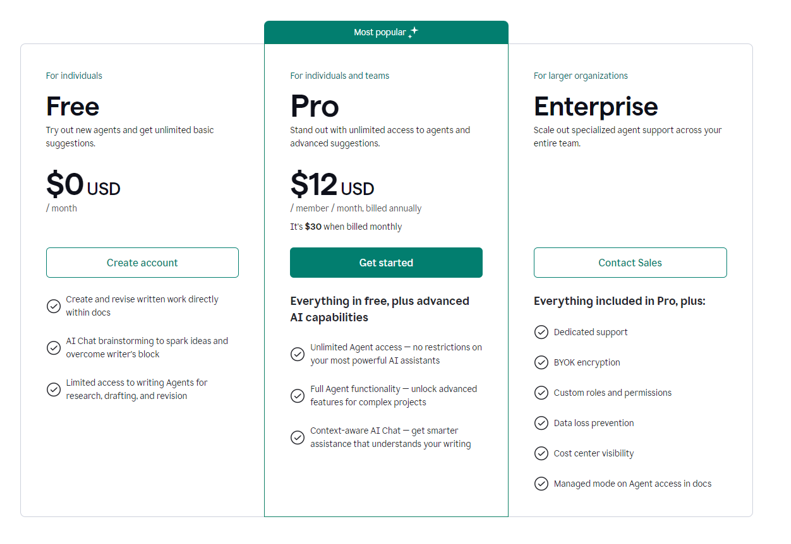
Best AI Tools for Students II: Copyscape, Professional Plagiarism Checker
Copyscape is an AI tool specializing in content similarity detection. It supports various formats like DOC, PDF, and TXT, or you can paste text directly to check for plagiarism. The results highlight matched sources and provide corresponding links.
- Pros:
- Supports multiple file formats, and results are detailed and intuitive.
- The pay-as-you-go model is cost-effective and flexible.
- Cons:
- Low sensitivity in detecting professional terminology.
- Lacks a real-time checking feature.
- Pricing:
- Copyscape uses a pay-as-you-go model, with no monthly or annual subscription required. Prices are primarily based on the word count of the text being checked.
- Free Version: Copyscape offers a limited free version.
- Copyscape Premium: Provides more powerful plagiarism detection, batch searches, a private index, and more. The cost per search is approximately $0.03 for the first 200 words + $0.01 for every additional 100 words (or part thereof).
- Summary: Copyscape is ideal for students who occasionally need to run plagiarism checks on their papers. Its pay-as-you-go model is very economical and flexible, allowing you to pay for what you use without the pressure of a long-term subscription. You just need to deposit a small amount into your account (minimum $5) to get started. This makes it one of the best AI tools for students who prioritize cost-efficiency.
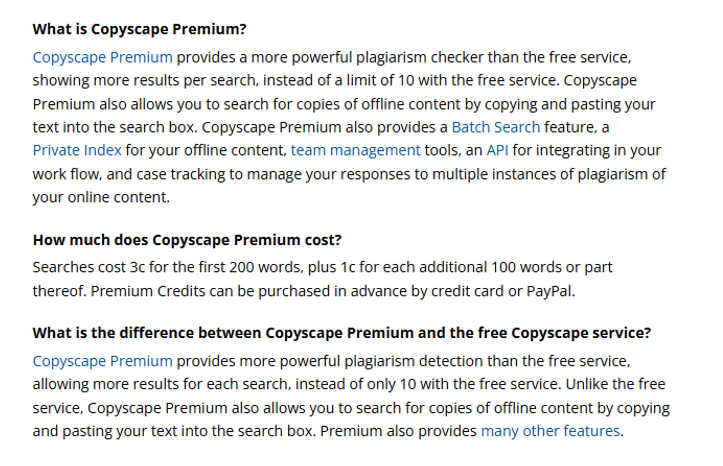
Best AI Tools for Students III: MindMeister, Collaborative Mind Mapping Tool
MindMeister is a mind mapping tool that supports real-time collaboration and multi-platform synchronization. It allows you to insert images, links, and attachments, and export maps to formats like PDF and PPT. It is perfect for brainstorming and knowledge organization.
- Pros:
- Powerful collaboration and sharing features with a variety of customizable templates.
- Mobile apps make it convenient to capture ideas on the go.
- Cons: The free version only supports three mind maps, and advanced features require a paid subscription.
- Pricing:
- Free Version: Basic features are available.
- Personal Plan: Starts at $6 per month.
- Pro Plan: $10 per month.
- Business Plan: $15 per month.
- Summary: Suitable for students who need to organize knowledge visually or work on team projects. Educational institutions can apply for a free education plan, which offers great value.
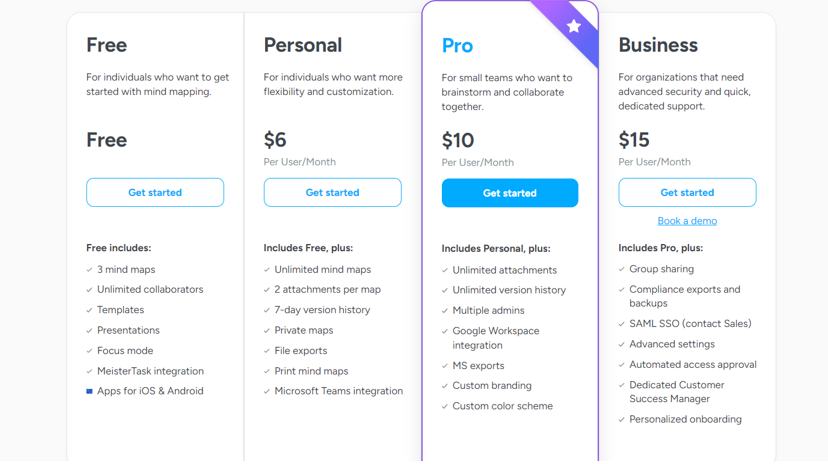
Best AI Tools for Students IV: Research Rabbit, AI Literature Discovery Tool
Research Rabbit uses AI to recommend relevant literature and visualizes research topics, author collaborations, and citation relationships in a network graph. It helps you quickly grasp the dynamics of a research field.
- Pros:
- Completely free with no usage limits.
- High accuracy in recommendations and supports team collaboration.
- Cons: Only supports English literature, and advanced search functionality is limited.
- Pricing: Free.
- Summary: One of the best AI tools for students who need to efficiently find English-language literature, especially for those in the early stages of research who need to understand the big picture.
Best AI Tools for Students V: Wolfram Alpha, STEM Computation & Knowledge Engine
Wolfram Alpha covers a wide range of subjects including mathematics, physics, engineering, and economics. You can input a question and get step-by-step solutions, graphs, and knowledge point analysis.
- Pros:
- Powerful computational and symbolic algebra capabilities with reliable data sources.
- Provides detailed solution steps and visualizations to aid understanding.
- Cons: Limited understanding of complex natural language, and the interface has a learning curve.
- Pricing:
- Free Version: Supports basic queries.
- Pro Plan: $5 per month ($60 annually).
- Pro Premium Plan: $8.25 per month ($99 annually).
- Summary: An essential tool for STEM students that significantly improves calculation and learning efficiency.
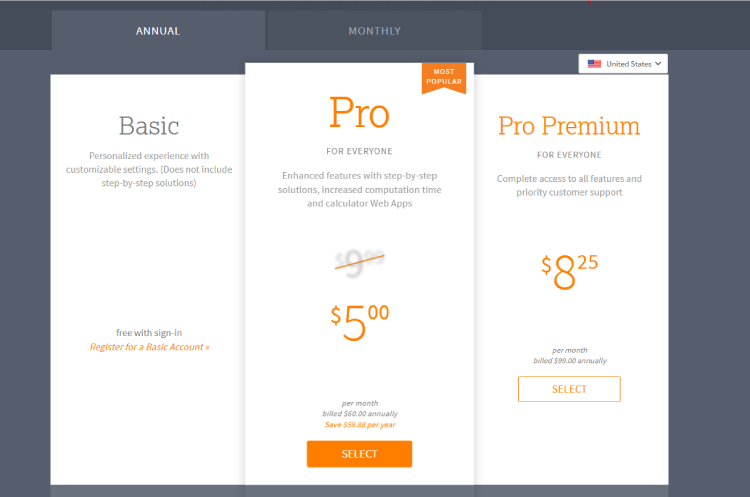
Best AI Tools for Students VI: Notion, All-in-One Workspace
Notion is an all-in-one collaboration tool that integrates notes, knowledge bases, to-do lists, and databases. Students can use it to manage course notes, plan study schedules, track project progress, create reading lists, and even build personal websites. Its powerful “Block Editor” allows you to freely embed text, tables, images, code, videos, and files, offering extremely high flexibility.
- Pros:
- Highly Customizable: Provides various templates (e.g., class schedules, assignment trackers, note templates), and users can also build pages entirely from scratch to fit their needs.
- Powerful Database Functionality: Use Kanban boards, lists, and calendars to manage assignments, references, or tasks, enabling efficient categorization and retrieval.
- Excellent Collaboration Experience: Easily share pages or entire workspaces with classmates to co-edit project reports or engage in group study.
- Cross-Platform Sync: Supports real-time synchronization across all platforms (Web, Windows, macOS, iOS, Android).
- Cons:
- Steep Learning Curve: The downside of its powerful functionality is that it takes some time to learn and become familiar with all the features.
- Limited Offline Support: While the mobile app supports offline editing, the desktop version’s offline functionality is weak.
- Pricing:
- Free Version (Personal Plan): Very friendly to individual users, offering unlimited pages and blocks and allowing up to 10 guests to collaborate. This fully meets the needs of most students.
- Paid Version (Plus Plan): $10 per month, offering unlimited collaborators, longer version history, and more, making it suitable for in-depth team use.
- Business Plan: $20 per month.
- Summary: Notion is not just a note-taking tool but a powerful hub for information management and organizing learning projects. It is very suitable for students who need to systematically manage multiple courses, group projects, and personal knowledge systems. The free upgrade to the Notion Plus Plan with a school email (.edu, etc.) makes it an exceptionally valuable and one of the best AI tools for students to have.
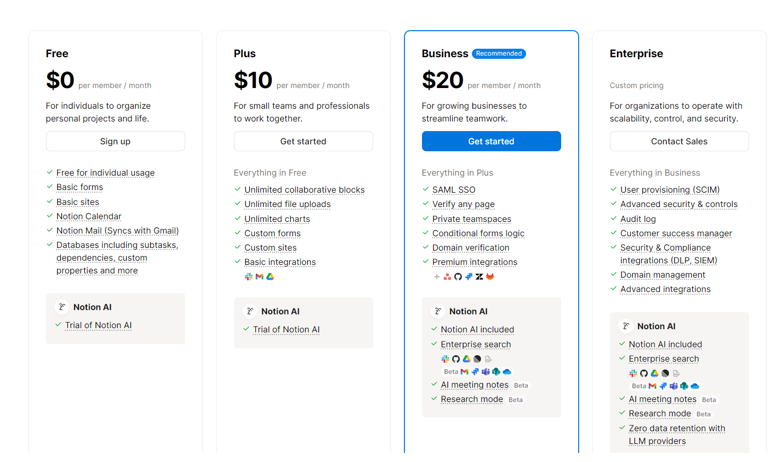
Conclusion
Choosing the right AI tools can have a profound impact on your academic performance and learning experience. From Grammarly’s writing assistance to Wolfram Alpha’s scientific computation, from Notion’s all-in-one collaboration to Research Rabbit’s literature mining, each tool has unique advantages that can effectively support your learning needs in different scenarios. By wisely utilizing free versions, educational discounts, and pay-as-you-go options, you can build a powerful and personalized set of digital learning assistants at a low cost. Embrace these best AI tools for students to improve your learning efficiency, optimize knowledge management, and confidently tackle academic challenges.
